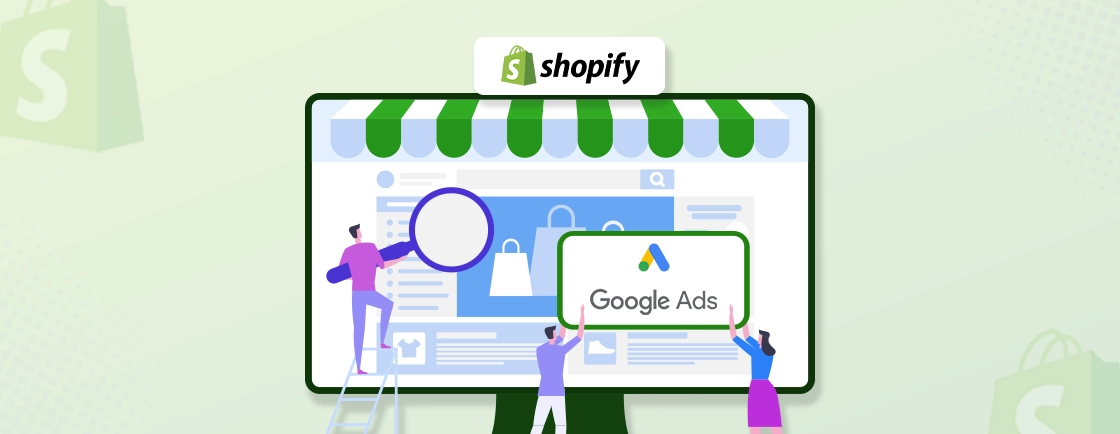Table of Contents
Are you planning to build an eCommerce store or improve your current one? If you’re using Shopify or considering it, there’s one role that can make the process much easier: a Shopify Developer. But what is a Shopify developer, and why would you need one? Think of them as your store’s behind-the-scenes hero, someone who understands the ins and outs of Shopify’s powerful tools to create a successful, smooth-running online store.
In this blog, we’ll dive into the roles and responsibilities of Shopify development professionals, see how they can help you grow your business, and why investing in one might be the smartest move for your eCommerce strategy. So, let’s break it down!
Who is a Shopify Developer?
A Shopify developer is a professional who specializes in building, customizing, and maintaining online stores using the Shopify platform. They don’t just build a store; they ensure it’s user-friendly, visually appealing, and technically sound.
These developers have a deep understanding of Shopify’s features, capabilities, and coding language (like Liquid, the programming language Shopify uses). They focus on making sure your store works perfectly, looks great, and can handle all sorts of special features you might need—like new tools, apps, or custom designs. They can also troubleshoot complex issues and integrate your store with other services, such as payment gateways or shipping solutions, ensuring a smooth eCommerce experience.
Types of Shopify Developers
There are different types of Shopify developers, each specializing in specific areas. Let’s explore the main categories:
- Shopify Web Developer: Shopify web developers are experts in building and maintaining entire Shopify websites. They work on creating designs that match the business’s needs while ensuring that the site runs smoothly. They handle everything from basic store setup to enhancing the user experience, ensuring your site looks good and operates effectively.
- Shopify Theme Developer: Shopify theme developers focus on designing themes specifically for Shopify stores. They create visually appealing, user-friendly designs tailored to each business’s unique requirements. Their work ensures that products and services are presented in an engaging way that aligns with the brand’s identity.
- Shopify Plugin and App Developer: These developers specialize in building plugins and apps that add special features to Shopify stores. Whether it’s adding an advanced search feature, creating a loyalty program, or improving product management, they develop tools that help stores operate better and more efficiently.
- Shopify API Developer: Shopify API developers are like digital connectors. They integrate various systems, databases, and tools with the Shopify store, ensuring seamless data flow. Whether it’s connecting with external inventory management systems, CRM tools, or other essential services, these developers ensure that the store functions smoothly and communicates effectively with other tools.
With these different specializations, Shopify developers can tackle nearly any challenge you have in mind for your online store, making them a valuable part of your eCommerce team.
Key Responsibilities of Shopify Developers
Hiring a Shopify developer can be a game-changer for your eCommerce store, but before you dive in, it’s essential to understand their key responsibilities. Whether it’s building a site from scratch or optimizing an existing one, these developers take on various tasks to make sure your online business thrives. Let’s break down what they do:
- Create a Unique and User-Friendly Online Store: Shopify developers design and develop custom online stores that match your brand and business goals. They ensure the site is not only visually appealing but also easy for customers to navigate.
- Integrate Different Business Functions: From payment gateways to inventory systems, Shopify developers connect all the critical parts of your business. This integration ensures everything runs smoothly behind the scenes.
- Customize Code: Sometimes, the default Shopify setup isn’t enough. A developer can tweak the code to add new features, adjust layouts, or solve specific business challenges, making your store as unique as your vision.
- Tailor the Store to Business and Market Needs: Shopify developers optimize your store to meet the specific demands of your business and the competitive market. This includes designing templates, configuring settings, and customizing features that align with your company’s goals.
- Integrate Marketing Tools, APIs, and Apps: Whether it’s integrating third-party marketing tools, connecting APIs, or adding Shopify apps, developers ensure your store works with the essential software you need for running promotions, managing inventory, or streamlining operations.
- Create SEO-Friendly Designs: To improve your site’s visibility on search engines like Google, developers design websites that are SEO-optimized. This includes everything from clean code to structured data and mobile-friendly designs.
- Seamless Social Media Integration: A Shopify developer can easily link your store with social media platforms like Facebook, Instagram, and Pinterest, allowing customers to shop directly from your social profiles.
- Performance Testing and Optimization: Regular testing is key to maintaining a high-performing website. Shopify developers monitor your store’s speed, fix bugs, and optimize features to ensure a smooth experience for users. This includes improving load times, reducing bounce rates, and boosting overall site efficiency.
- Technical Support and Maintenance: Shopify developers provide ongoing support to address any issues that arise. They work behind the scenes to keep your site secure, up-to-date, and running efficiently.
- Security and Compliance: Keeping your customer data safe is a top priority. Shopify developers implement security measures like SSL certificates, two-factor authentication, and compliance with industry standards to safeguard your store from cyber threats.
By understanding these responsibilities, you can better identify the skills and expertise you need in a Shopify developer, making sure your eCommerce store not only looks great but operates smoothly and efficiently. Looking for expert help to bring your store to the next level? Our Shopify development company is here to provide smart, effective support that gets real results.
Benefits of Hiring a Shopify Developer
When running an online store, having a Shopify developer on your team can make a significant difference in how smoothly your business operates. Let’s break down the most important benefits of hiring one:
Expert Customization & Tailored Solutions
Shopify developers are pros at crafting personalized online stores that align with your brand identity and business goals. They can customize everything from the site’s look and feel to advanced functionalities, creating a truly unique user experience.
If you want a specific feature—like custom checkout processes, advanced filtering options, or integration with niche apps—a Shopify developer can make it happen. Their expertise ensures your store stands out in a competitive eCommerce landscape.
Improved Store Performance
A fast, responsive website is crucial for keeping customers happy and reducing bounce rates. Shopify developers optimize your site’s speed by implementing techniques like code minification, image compression, and server-side enhancements. This results in faster loading times, better user engagement, and higher conversion rates.
Additionally, they focus on streamlining the entire user journey, making it easy for customers to navigate the site, find products, and complete purchases.
SEO Optimization for Increased Visibility
To help your store rank higher on search engines, professional developers implement essential Shopify SEO strategies. This includes optimizing page titles, meta descriptions, URL structures, and image alt texts. They also integrate structured data markup, which helps search engines understand your site better.
By improving your site’s architecture and implementing mobile-friendly designs, they make it easier for search engines to crawl, ultimately boosting your store’s visibility and driving organic traffic.
Seamless Integration with Third-Party Tools
Shopify developers excel at integrating a variety of third-party tools and apps that enhance your store’s functionality. From marketing tools like email automation and analytics software to inventory management systems and payment gateways, they ensure everything is set up correctly and works seamlessly.
For larger businesses, developers can work with Shopify’s API to build custom apps that automate processes, making operations more efficient and less time-consuming.
Enhanced Security and Compliance
Security is a top priority when running an online store, and Shopify developers ensure your store follows industry standards. They configure SSL certificates, set up two-factor authentication, and implement data encryption to safeguard customer information.
Additionally, they maintain compliance with regulations like PCI-DSS, which is crucial for secure payment processing. Regular security audits, along with implementing the latest security patches, ensure your store remains safe from vulnerabilities.
Ongoing Maintenance & Technical Support
Having a Shopify developer means you have access to continuous technical support, troubleshooting, and regular updates. They conduct routine maintenance checks to identify and fix bugs, enhance features, and prevent potential issues.
This proactive approach not only keeps your site running smoothly but also ensures it’s always up-to-date with Shopify’s latest changes and best practices.
Responsive Mobile Design for a Broader Audience
With the majority of online shoppers using mobile devices, a Shopify developer ensures that your site is fully responsive. They optimize layouts, images, and features to create a seamless shopping experience across all devices—whether it’s a smartphone, tablet, or desktop.
A mobile-friendly design not only enhances user experience but also positively impacts your SEO rankings.
Hiring a Shopify developer can be a game-changer for your eCommerce success. By tailoring solutions, boosting performance, improving security, and offering ongoing support, they help you create an online store that’s both user-friendly and profitable.
In-House Team Vs. Agency-Based Shopify Developers
| Factors | In-House Shopify Developers | Agency-Based Shopify Developers |
|---|---|---|
| Cost | Higher costs, including salaries, benefits, and overhead expenses. | More cost-effective; you pay for the services you need without additional overhead. |
| Expertise Level | Limited to the skills of the hired team; may require additional training or upskilling. | Diverse expertise, as agencies have specialists in different areas (design, development, SEO, etc.). |
| Availability | Full-time availability, ensuring quicker responses and dedicated attention. | May work with multiple clients, so availability might be an issue. |
| Scalability | Scaling up or down can be slow, requiring hiring or layoffs. | Quick scalability; agencies can allocate more resources or adjust services as needed based on project requirements. |
| Turnaround Time | May be slower due to limited resources and a smaller team. | Faster delivery due to a larger pool of developers and resources; teams often work collaboratively for efficiency. |
| Flexibility | More flexibility to work according to company culture and adapt processes. | Standardized processes but offer flexibility in terms of different service packages, project scope, and requirements. |
| Infrastructure | Requires investment in tools, software, and other infrastructure needs. | Already equipped with necessary tools, software licenses, and advanced technology to support your Shopify store. |
| Consistency & Focus | High consistency, as developers are fully focused on your brand and business. | May have multiple projects running simultaneously, but a well-defined process ensures quality and focus. |
| Hiring & Onboarding | Time-consuming, as it involves recruitment, onboarding, and possible training. | No recruitment hassle; you get immediate access to skilled developers ready to work on your project. |
| Long-term Commitment | Ideal for ongoing, long-term projects or continuous development and maintenance needs. | Ideal for specific projects, one-time tasks, or when expert-level interventions are required. |
| Project Management | In-house teams need dedicated project managers for coordination and tracking progress. | Agencies typically provide project management as part of their service, offering regular updates and reports. |
Tips to Hire Shopify Developers
When you’re ready to hire a Shopify developer, keep these tips in mind to find the right fit for your project:
- Define Your Needs First: Be clear on what features and functionality you need. Whether it’s a simple store setup or a highly customized site, knowing your requirements will help you find a developer with the right skills.
- Check Their Portfolio: Look at their past projects to see if they’ve worked on stores similar to yours. A strong portfolio shows they have the experience you need.
- Evaluate Their Communication Skills: Clear communication is key, especially for remote teams. Make sure the developer or agency can explain technical details in a way you understand and provide regular updates.
- Ask About Their Shopify Expertise: Make sure the developer is well-versed in Shopify’s tools and best practices. Ask about their knowledge of Shopify themes, apps, and integrations to ensure they’re up to speed.
- Check Reviews and References: Read testimonials or ask for references from previous clients to get a sense of their reliability and quality of work.
- Discuss Ongoing Support: Ensure the developer offers post-launch support for any future updates or fixes. It’s important to have a plan in place for maintenance after the site is live.
- Consider Budget and Timeline: Be upfront about your budget and deadlines. A good developer will be transparent about whether they can meet your expectations within those limits.
Following these tips will help you hire a Shopify developer that aligns with your project needs, timeline, and budget.
You can trust us when it comes to hiring dedicated Shopify developers. With years of experience in Shopify development and quick turnaround time, we can help you keep your online store running without any hassle.
Conclusion
Hiring a Shopify developer can be one of the best decisions you can make for your online store. Whether you’re just starting or looking to take your eCommerce site to the next level, their expertise can make a real difference. From building a unique storefront to optimizing for SEO and performance, they help ensure your store stands out and runs smoothly.
If you’re debating between an in-house team or an agency-based developer, remember that it’s all about finding the right fit for your business. A dedicated agency-based developer often combines the best of both worlds, offering flexibility, cost-effectiveness, and expertise.
Ready to level up your Shopify store? Hire Shopify developers from our team to grow your business and improve your customer experience.
FAQs on What is a Shopify Developer
What skills should I look for in a Shopify developer?
Look for someone who knows the basics of web development, like HTML, CSS, and JavaScript. They should also be skilled in Liquid, which is Shopify’s main coding language. If they have experience with back-end tools like Ruby on Rails, it’s a bonus but not necessary.
How do I choose a Shopify expert?
Start by checking their portfolio—look for examples of Shopify stores they’ve built. Make sure they understand your business needs and have relevant experience. Read client reviews and, if possible, ask for references. A good expert should be easy to communicate with and responsive to your ideas.
Is hiring a Shopify developer worth it for my small business?
Yes, it’s worth it! A Shopify developer can help you create a professional, user-friendly store that’s tailored to your brand. They can also optimize your site for better performance and higher sales, allowing you to compete effectively even as a small business.
Accelerate Your Shopify Store
Leverage Shopify's AI tools and expert development to launch and scale your online store.





